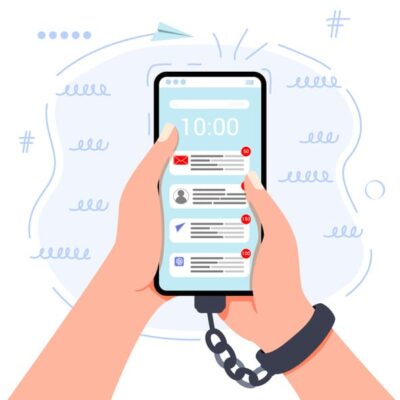What to know about addictions
According to the World Drug Report 2022 of the United Nations Office on Drugs and Crime (UNODC), around 284 million people between the ages of 15 and 64 used drugs worldwide in 2020, representing an increase 26% compared to the previous decade.
The figure increases considerably if we include alcohol or tobacco.

Substance dependence has a multifactorial origin: environmental, biological, genetic and psychosocial factors intervene.
The use and abuse of substances such as alcohol, cocaine or cannabis is associated with numerous mental and behavioral disorders of various kinds such as aggression, depression, anxiety, and even psychotic episodes in which there is a loss of contact with reality as well of having negative social consequences such as family conflicts, sentimental breakups, labor and economic problems, risk behaviors, etc.
On other occasions, the addiction is not to substances but to behaviors, such as pathological gambling, gambling addiction.
On the other hand, numerous studies also show a higher prevalence of substance use in people with mental disorders such as depression, anxiety, ADHD (attention deficit hyperactivity disorder), personality disorders, bipolar disorder, etc. .
New times, new addictions
The advancement of new technologies has given rise to the appearance of new addictive behaviors in which the substance that is consumed is something intangible such as the Internet, social networks or online games through technical devices such as mobile phones, tablets, consoles or computers.
In 2009 we came across the term nomophobia, which refers to the irrational fear of being without a mobile phone.
People who suffer from it have profuse sweating, nervousness and intense anxiety when they do not carry their mobile phone.
This dependence or addiction to the mobile phone conditions, limits and complicates the rhythm of life of the affected person as well as that of their environment.
Although the term nomophobia is not yet officially declared as a mental disorder, in psychiatric consultations it is already treated as an addiction due to the symptoms and behaviors that it reflects.

Another of the new pathologies is video game disorder.
In February 2022, the WHO added the use of video games to its manual of mental disorders, becoming officially considered a disorder due to the addictive behaviors that it entails.
It is about the total loss of control over the game, this being the one that dominates the player’s life, causing him to lose balance and order in his life or routine.

When someone tends to play more time than they had originally planned, if they stop paying attention to their personal care because of playing (eating less or worse, neglecting their image or hygiene), they do not do other activities such as school or work tasks, they do not meet your social engagements, or think about the game even when you are doing other tasks, you could have gaming disorder.
I have extensive knowledge and experience in treating these pathologies and, in addition, treatments such as cognitive behavioral therapy have shown good results.
If you think you are going through any of these addictions or think that someone around you may be suffering from it, make an appointment now.
Dual pathology… what is it?
In the field of Mental Health, we speak of Dual Pathology when we want to refer to those people who suffer from an addiction to the consumption of psychoactive substances, together with a mental disorder.
¿How do I help people with dual pathology?
